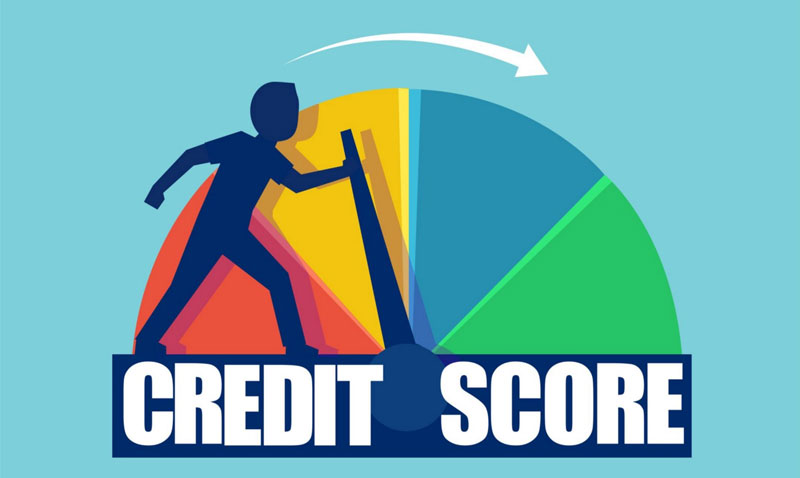How to Rebuild Your Credit Score
Susan Kelly
Mar 07, 2022
Many financial circumstances in life can be made easier and less expensive if one has good credit. It's possible to qualify for the best interest rates and terms possible on a mortgage or car loan with good credit.
Good credit can also affect your insurance premiums and whether a utility company requires a small or no deposit before beginning service for you. As a result, your credit score may not be as good as you'd like.

Credit Repair: How Long Does It Take?
Rebuilding one's credit can be a lengthy endeavor. Credit repair can take a long time, depending on your situation. Various elements go into how long it takes to repair bad credit.
Because most things don't have a lasting effect on your score, this is a positive thing! The unfavorable effects may also diminish over time. In the long run, patience and excellent habits will pay off!
Rebuilding Credit with Credit Cards
You may want to look into credit cards even if you're starting. A credit card might help you rebuild your credit if you use it wisely. For those with fair credit, Capital One offers secured and regular credit cards and a secured card for those working to rehabilitate their credit history.
Pre-approval for several Capital One credit cards is an option if you're not sure which card is right for you. This only takes 60 seconds and will not affect your credit score in any way.
Remember that improving your credit takes time. However, it is feasible if one practices prudent financial management. Also, you can start at any time.
Which Cards Help Restore Credit?
The finest credit cards for rebuilding credit include low fees and reporting your monthly payments to credit agencies. This includes low- or no-annual-fee credit cards, as well as the ability to set up automated payments.
I am trying to figure out where to begin? Many credit cards for those with good or average credit do not levy a fee. Consider a secured credit card if you don't qualify for an unsecured card without an annual fee.
Credit Repair Steps

Rebuilding one's credit can be done in various ways, with the most effective options varying from person to person. Rebuild your credit by using the alternatives on this list as a starting point for a plan that is unique to you.
Keep up With Payments
Rebuilding your credit begins with ensuring all of your accounts are current (not behind on payments). Having accounts that are 30 days or more overdue can hurt your credit rating, and the worse the harm becomes, the longer it goes on.
Additionally, late penalties and interest charges may be added to your account if you have an unpaid amount. The longer you wait to get caught up, the more expensive it will be.
Contact your card issuer if you're having trouble keeping up with your payments. In most circumstances, a payment plan can be worked up with your credit card company. Ultimately, it is in the creditor's best interest for you to pay back the debt that you owe.
Pay Off Large Debts
Your credit usage ratio is one of the most important variables in determining your creditworthiness. The amount of credit card debt you have divided by the total amount of credit you have accessible is known as the debt-to-available-credit ratio.
A credit card with a $500 balance and $1,000 credit limit has a utilization ratio of: $500 / $1,000 = 0.5 = 50%. Creditors look for high utilization as a red flag that you've taken on more debt than you can handle.
As a result, if you have a lot of credit card debt, it can lower your credit score. Paying off your debts is one strategy to improve your credit score. Try to maintain your utilization below 30% (don't owe more than one-third of your credit limit) as a general rule of thumb. The optimal percentage is below 10%.
Always Pay on Time
Payment history is built every time a credit card payment is made and recorded with one of the three major credit bureaus. Most of your credit score is based on how well you've paid your bills in the past.
It's impossible to build good credit if you're not making your payments on time. Ensure that you pay at least the minimum monthly amount by each month's due date. To avoid credit card interest fees, you should try to pay off your debt in full each month.
Initiate Automatic Payments
Allow your credit card company to keep track of your payment deadlines if you're having difficulty keeping track of them yourself. Automated payments can be set up with most banks and credit card companies.
Choose how much and when you want to pay — make sure it's at least the required minimum — and the payments will be processed when you specify. You should make additional payments to cover the remaining balance if you have not set up recurring payments to cover the entire bill.
Maintain Low Balances
As previously stated, your credit score is heavily influenced by your credit utilization rate. Once you've paid off all of your debts, it's important to maintain a low balance.
If you keep building up your credit card bills after paying them off, you won't be able to rehabilitate your credit. People with great credit are more likely to have less than 10% utilization rates.







